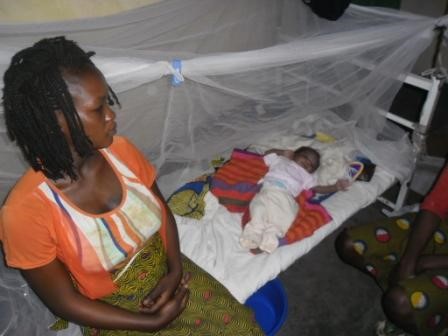Women’s Health Challenges in Kenya
In every country, women face barriers to accessing prenatal healthcare. High costs, lack of access to transportation, understaffed rural clinics, and no paid sick or maternity leave exist here in the United States as well as in other countries. Mission co-worker Brigitte Eale, currently serving with the Organization of African Instituted Churches (OAIC), believes that the church can help women overcome these barriers. In fact, she has made this the focus of her Ph.D research and has been conducting this research while serving in Kenya.
Ever since she finished her Bachelor’s degree, Brigitte has felt a calling to help women to access healthcare. She began living out this calling by working with women in the Democratic Republic of Congo who experience conflict-related sexual violence as well as those who have HIV. She is now working in Kenya on public health and the role of the church and sees many similarities between the two countries. She is currently focusing on maternal health and access to prenatal care and finds that women don’t necessarily have time to go to the doctor for prenatal check-ups because they need to work to earn money for their family. Or they can’t afford to go to the doctor because it is expensive.
Poverty is a huge challenge because when a woman doesn’t have enough money to afford food, she has worse health overall, which increases the likelihood that she will have more difficulties giving birth and the baby will have health challenges. Another challenge is a lack of education. Some women can’t read and don’t know about the healthcare system or have never been to the doctor or seen a nurse and don’t know they should go. In rural areas there might not be a hospital or clinic nearby and in urban areas, particularly slums, there is limited transportation and sometimes it’s not safe to be out at night so when a pregnant woman goes into labor she might just call her neighbor over instead of venturing out at night.
Since starting her work with OAIC in Kenya, Brigitte has been going around to local churches to speak with the pastors and lay leaders to educate and train them on maternal health. She was seeing previously that when women get pregnant they stop coming to church and no one in the church was asking why. Pastors are trusted local leaders so when they speak from the pulpit on an issue, it can be a good educational tool for both men and women to hear about prenatal and maternal health care.
When the COVID-19 pandemic stopped the in-person aspect of her work, Brigitte and OAIC have pivoted to providing support to women in other ways. She’s been calling women to provide support and encouragement. In addition, OAIC has been providing seeds for women to plant so their families can have food and maybe a small source of income since there isn’t much other work available. In urban areas they’ve been providing cleaning supplies and face masks to help keep people safe from COVID-19, which is especially dangerous for pregnant women.

